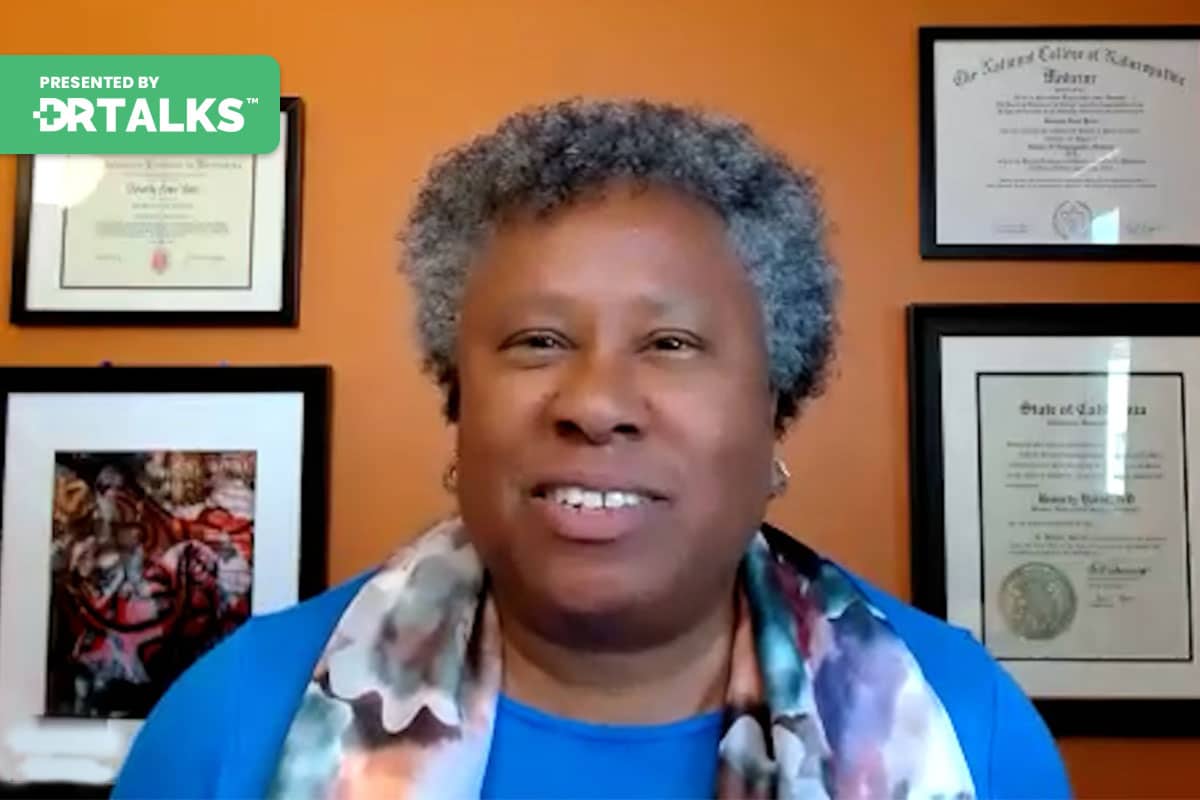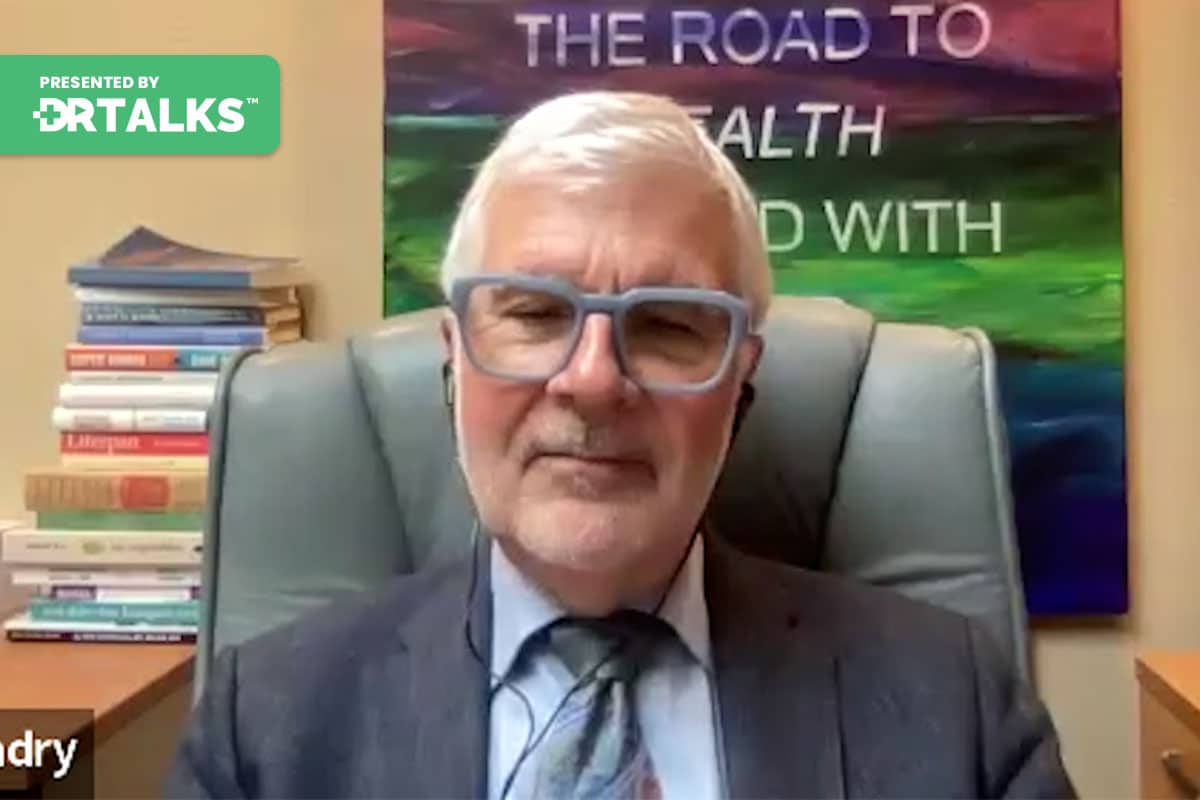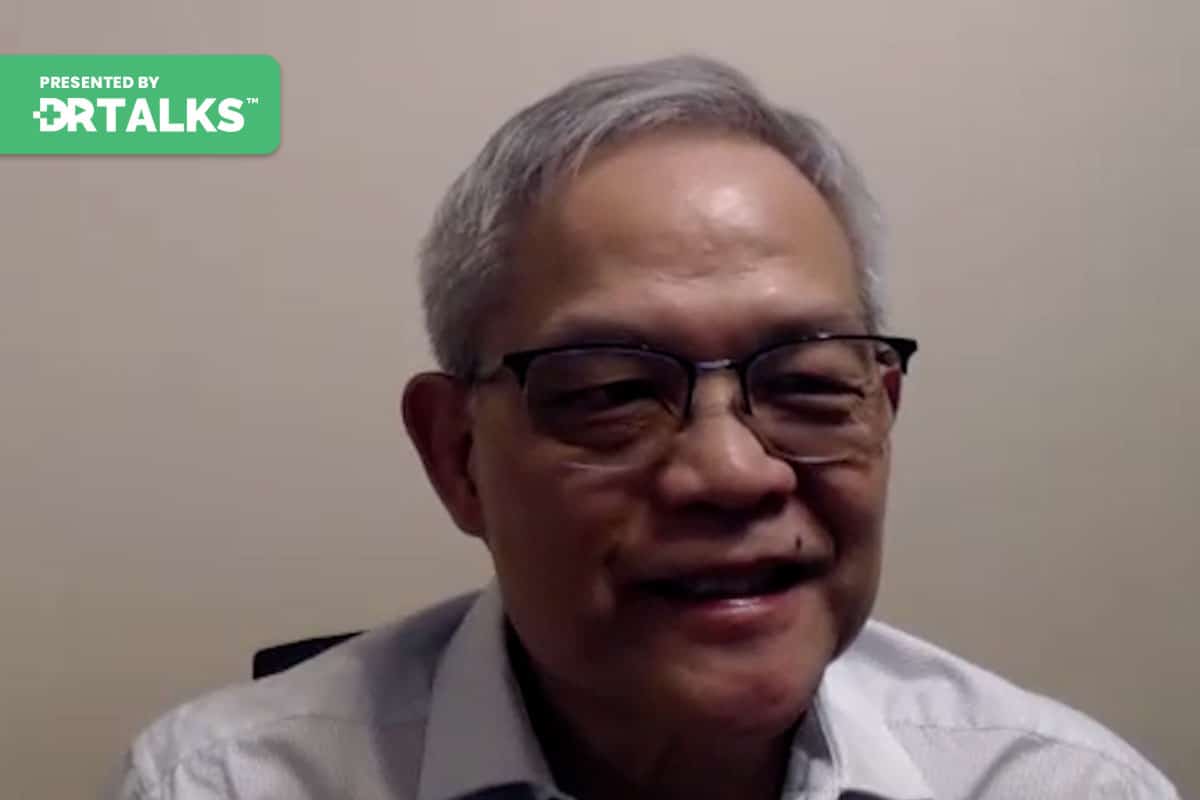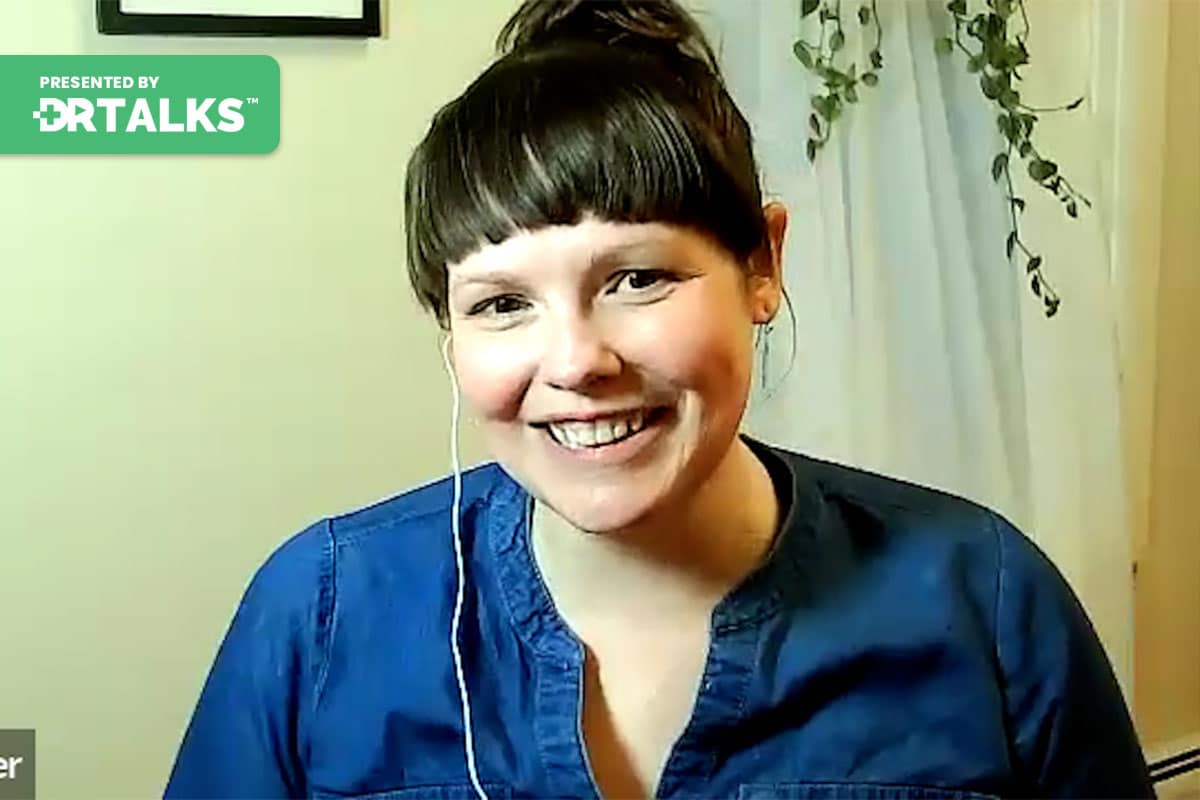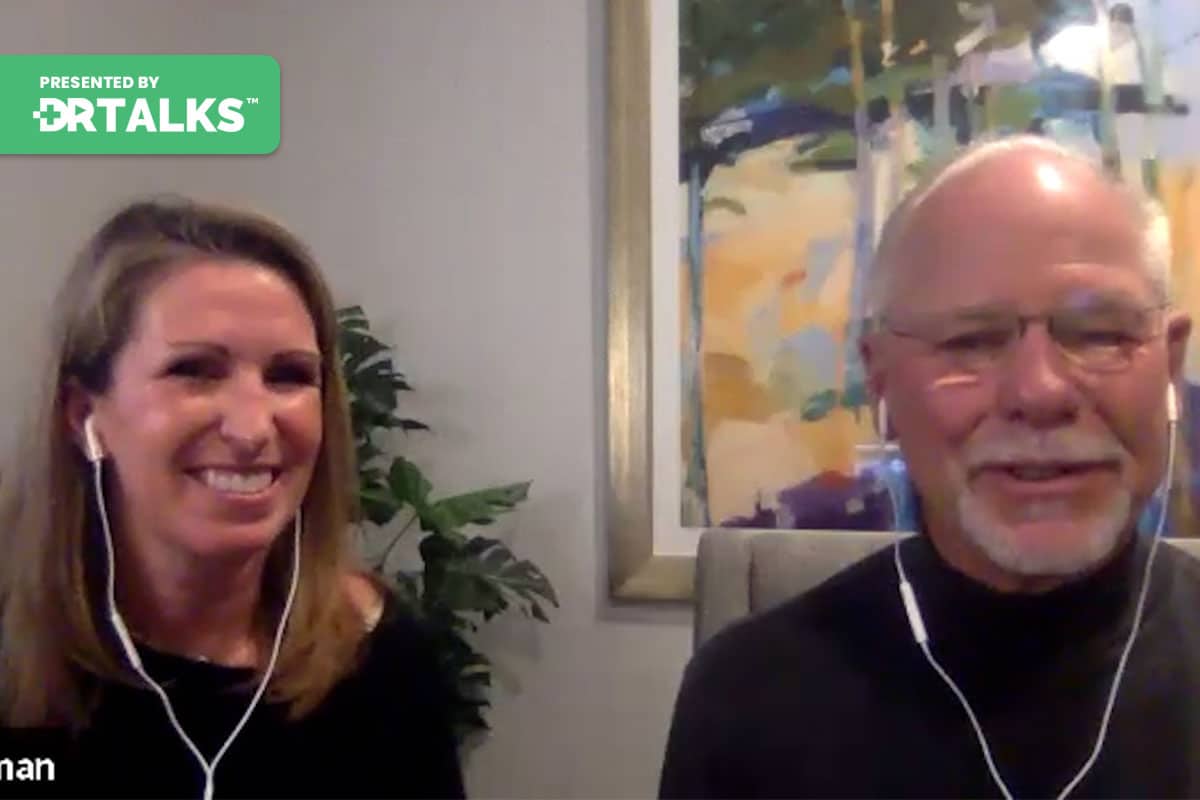Join the discussion below

Dr. Heather Sandison is the founder of Solcere Health Clinic and Marama, the first residential care facility for the elderly of its kind. At Solcere, Dr. Sandison and her team of doctors and health coaches focus primarily on supporting patients looking to optimize cognitive function, prevent mental decline, and reverse... Read More

Beverly Yates, ND is a licensed Doctor of Naturopathic Medicine, who used her background in MIT Electrical Engineering and work as a Systems Engineer to create the Yates Protocol, an effective program for people who have diabetes to live the life they love. Dr. Yates is on a mission to... Read More
Dr. Beverly Yates describes why Alzheimer’s is called Type 3 Diabetes
- Understand the connection between blood sugar and brain health
- Learn that Pre-Diabetes should not be underestimated as it is a major threat to your brain health
- Explore how chronic inflammation causes damage to your circulatory system
- Learn about 5 Factors of Lifestyle that influence blood sugar levels
Heather Sandison, ND
Welcome to this episode of the Reverse Alzheimer’s Summit. I’m so excited to introduce you to my friend and colleague, Dr. Beverly Yates. She is a licensed naturopathic doctor, and she is the nation’s leader in online type two diabetes care. Her virtual practice has programs and supplements to help people lower their blood sugar naturally and at home without ever having to step foot in a clinic. Dr. Yates is on a mission to help 3 million people heal from type two diabetes and pre-diabetes. We have her here today to talk about the connections between blood sugar and Alzheimer’s. You may have heard Alzheimer’s is referred to as type three diabetes. This is when toxicity from blood sugar actually starts to cause damage to the brain. So, Dr. Yates, welcome.
Beverly Yates, ND
Oh, this is so lovely. Thank you so much, Dr. Sandison. And I appreciate all the work and effort you are putting into helping people who are at risk for who currently have Alzheimer’s to have better quality lives. Thank you for showing the way and being a leader. I appreciate you.
Heather Sandison, ND
Thank you so much. I have been looking forward to this conversation for months and it is finally here. And I want to just say, we could talk for hours. I already know because we have done it before. But let’s just dove into the meat of it. So why did we kind of started this? I started this in the intro. But why do you feel that Alzheimer’s dementia is called type three diabetes. What is the connection?
Beverly Yates, ND
The connection, I feel strongly, is around the issues with insulin resistance, and I think it precedes all the damage. It is like the gateway, the thing that connects these situations. And I have seen this clinically. I even unfortunately in all this in my family with my mother in law, where before when I was in engineering, before I became a naturopathic doctor, my father in law would tell me that she had problems with pre-diabetes. And this was years and years ago. And it was it preceded what then became Alzheimer’s for her. So I have seen that up close, that transition. And if we’d known then what we know now, wow, that could have had a very different outcome.
Heather Sandison, ND
So okay, I started with blood sugar being so toxic, but you are saying that insulin resistance is actually an even bigger part of the problem. So I think a lot of people have heard of insulin resistance. But can you break that down biochemically? What does that mean? What’s going on?
Beverly Yates, ND
Okay. So insulin resistance means then that the person’s ability to make use of insulin that their body is making. So in this case, it is most likely someone who maybe does not even know they have a problem. Their insulin is not effective in grabbing glucose or blood sugar from the bloodstream and making the glucose available inside the cell. Insulin is going to sit there on the cell wall, grab up the glucose, the blood sugar in the bloodstream, bring it inside the cell, and make it available for energy. If there is too much then it becomes fat. It gets stored somewhere, typically in the liver, but in other places, right? If that process is broken or deranged, then the brain in particular for it is own sensitivity, it may contribute to the very problems that we see with the tail particles, the beta-amyloid formation, all of these things. Right. I tell my patients this, it is like the whole work gets gummed up.
So I know we have both health professionals at this summit along with the general public, so I’m going to try to speak to both. Think of it like this when you have if you think of tumbleweeds going along right on the prairie and then you see a bunch of tumbleweeds gummed up together, they are like giant balls of Velcro. If you take Velcro so sticky and pull it apart, well, why would I use that analogy when there is too much blood sugar? That extra blood sugar, the extra glucose sticks to the actually occurring proteins in the blood and we measure it with hemoglobin A1. C What we measure with A1 C is the stickiness of that extra blood sugar to your red blood cells. Now, every day your bone marrow is putting out beautiful, brand new fresh red blood cells. But if you chronically have too much blood sugar, too much glucose, and excessive glycemic opportunity, if you will, in the blood, then it is sticky like Velcro. That extra blood sugar sticks to the naturally found proteins in the red blood cell wall hemoglobin. We measure it. That is the agency. So if you are at risk of or if you have instant resistance, if you know your family has issues with Alzheimer’s, or if you are simply trying to protect your brain health, you must control your blood sugar and resistance to insulin. Insulin resistance means your insulin is not working to effectively grab up that blood sugar and make it useful.
Therefore, it is still staying in the blood and it has the opportunity to be the velcro called Glycation, right? Advanced Glycation. That is the process we are talking about. And so that is a much bigger thing. This is relatively small. Just to give you an image, let us say that is a normal-sized molecule. You get a glycation end product. Now this is way bigger and takes up a lot more space and that is why diabetics are at risk of losing their vision and going blind. All the issues with the kidney skin with that extra blood sugar, the threat to the brain. Yes, heart attacks, strokes, the loss of limbs in the gangrene and amputations, the wound, poor wound healing, and immune system threat. There is just a whole host of worse. But when we are talking about the brain, the thing about this, Dr. Sandison, is that so much of that is silent. The damage that is happening is silent. So people under-appreciate and they will say, oh, I just have pre-diabetes. I’m okay. No, you are not okay. You are under threat.
Heather Sandison, ND
So you have mentioned hemoglobin A1C which is a pretty easy test to get through any doctor. And so hopefully a lot of people who are listening like they know their A1C number. Now will you take us through what is designated as pre-diabetes? Where it is designated as diabetes? And what’s the goal when we are looking at that number?
Beverly Yates, ND
Okay. It is a great question. So what is designated currently is pre-diabetes. And these numbers have changed, by the way, over the decades for sure. If you are a long-term practitioner, you know this. And if you are a person who is been traveling about sugar for a long time, you know this so recently, now the numbers are this. If you have an A1, see a hemoglobin A1 C measure of 5.7 to 6.4, which is considered pre-diabetes. If it is A1C 6.5 and higher, that is considered type two diabetes. And in there, I have always thought of it as a spectrum. What it means then is somewhere along there is a measure of how much your blood sugar regulation is not under good glycemic or blood sugar balanced control. that is really what that is about. But I really want to make sure anybody listening who has pre-diabetes please do not, you know, underestimate the threat you are under. Because a lot of people, get scared when their pre-diabetes turns to type two. Diabetes is like a switch flips and now they feel more urgent. So if you are in the free range, please take that seriously.
Heather Sandison, ND
Absolutely. And this is that range. When we are talking about the spectrum of dementia to very severe dementia, it is so much harder to treat. But if we are talking about mild cognitive impairment, even though that is relatively severe, we are talking about those early stages of cognitive decline. that is the time to act because it is so much simpler, it is so much easier, and it is so much quicker to get a reversal of the disease process. And I’m imagining it is similar to diabetes. If we pay attention to those signs and those symptoms and those numbers earlier on, we can get a reversal and a reversion to more optimal health a lot easier than right.
Beverly Yates, ND
That absolutely right. You know, it just makes sense if you have been exercising actively and taking care of yourself and if for some reason, let’s say you have had an injury, you have been in an accident and you have been forced to take a break for 6 to 8 weeks, an unplanned break, you are going to lose some level of conditioning. It just makes sense. Right? I think we all know that. And so when it comes to reversal and changing the situation and getting things into remission and improving it, the further you have to travel, the longer it is going to take. And there is probably more damage that has occurred along the way. So the good news is the sooner you start it, the better off you are. But if you are long into a process, I say do not give up hope because at least you are putting a firm plant of your flag if you keep further damage from happening. Right. We all got to start somewhere.
Heather Sandison, ND
Okay. So we are motivated, right? Like we get what’s going on, we get insulin resistance and glycol toxicity. We know what numbers to be looking at and we understand why it is really important to start making these changes at the earliest moment that you realize that something is maybe a little out of whack or off balance. So what do we do if we are right?
Beverly Yates, ND
So here is what you do. We are ready, right? Like, pay attention. Like notice, you know, do I have any issues with, say, memory deficit or cognitive decline? Do I feel like my memory is just not? There are other people giving me feedback that like, Yeah, you were just forgetting some pretty basic things. Now I want to say something about what we consider to be normal aging versus typical aging. A lot of times as people get older, they come to expect that their memory is going to fail. And the second they can not find their teeth, the second they put their favorite teacup someplace odd and look for it. If they freak out. And when they were younger and these things happen, they do not think twice about it like, Oh man, I just misplaced my keys. Like it was no big deal. That one-off event is different than many times a day. Not to be confused, right? I think we all need some education. Would you agree, Dr. Sandison, about where it is we should be paying attention to? What should we be looking for? What are the hallmarks that go on? Because I think that sometimes people are worried about something that is actually not an issue, and it is other people who are pretty blasé who should be a lot more considered.
Heather Sandison, ND
And stressed that stress is also a component. Maybe we do not eat as well when we are under stress. So if we are freaking out, right, there is a balance and we do not want to be like freaking out that we have Alzheimer’s just because we have misplaced our keys and we are distracted and we do not want to be freaking out so much that we start having a super restricted diet. But wait, so because all of that stress just contributes to cognitive decline, but you talk about the five factors of your lifestyle that impact blood sugar the most. Well, you take us through those.
Beverly Yates, ND
Sure, I’m happy to do it. So I have, you know, packaged this up. It is become the Yates protocol. These five factors are super sensitive for lifestyle, for joy and for blood sugar control. My diabetic and pre-diabetic patients over the years have really helped me hone in and get this dialed in about what matters. So those five factors that are most sensitive for lifestyle, and that is the good news in my opinion, for blood sugar control. that is nutrition, right? And nutrition is the bull’s eye of the target. I think we all know what we eat matters. Let your food be your medicine. Your medicine be your food, too, is going to be. Sleep. Sleep is the foundation for all healing. If you aren’t getting good sleep, you are at risk for all sorts of things, whether it is joint repair, gut issues, certainly for the healing and repairing the brain. The brain requires certain cycles of brain health to happen so that the cerebral spinal fluid, other things can clear, literally clean out and detox the brain. And if you aren’t sleeping well, that is not happening, which also contributes to and sets up the stage for Alzheimer’s. Right. Number three is going to be stress. I always like stress and start to stand out into being a bully that grabs people by the shirt collar and slams them up against the epigenetic expression of whatever is hanging out in their genes and their environment and lifestyle is going to force that weak, link those vulnerabilities to be what shows up, going to.
Heather Sandison, ND
Your imagery.
Beverly Yates, ND
Yeah, yeah. It is not going to ask for permission. It is just going to do stuff and you are not going to be happy with it. So you want to do as much as you can to do stress relieving right? So make simple thing for me, you know, for aromatherapy, I right here on my desk, make it easy. You know, you have got to do your self-care when and how you can right before this interview, I just came back from a beautiful walk on a lovely, sunny day. You know, I do what I recommend for others, and I invite everyone as much as you can. Please do their self-care things.
Heather Sandison, ND
Okay. I just want to review to make sure that we have got them all. So nutrients, sleep, and stress.
Beverly Yates, ND
Yeah. Got two more to go. So number four is exercise. That is right. Exercise. Friends, you know, active working muscles are blood sugar sponges. Right. So, you know, I’m sitting I’m here for telehealth or whatever. Right. And we are going to clients. I like to keep this real, keep it real good. Whatever you got to do, stand up, you know, walk around, things like that. And then resistance training is part of exercise, movement, dance, you know, whatever you need to do and whatever you enjoy at all counts. I do not want people to underestimate the importance of that because not everyone is necessarily going to be spending time in a gym. You can use your own body weight, but whatever you do, you just need to get it done. And then number five, guess what? Number five is?
Heather Sandison, ND
Well, you know, what’s happening here is I’m realizing that I want everyone else to realize that your list is really similar to mine. Right? It is nutrients, stress, it is exercise, it is sleep. And we talk about infections and signaling and there are so many other things. But you have nailed the foundation’s digest. And so I’m super curious. Connection and love is another big part of ours, so I can not wait for you to tell me what it is
Beverly Yates, ND
Okay, so this is where I talk about a little differently, probably because my focus is on diabetes. I love the idea you are talking about community and connection and not being isolated. that is brilliant, totally supportive. But number five, I find for the folks I work with is meal timing. Many people with diabetes is the rock in their community. They do so much for other people. They are generous souls. The overall stereotype of being fat, lazy, indulgent, wanting to wreck their own health. Listen, I have never met anybody who gets up in the morning, says, How can I screw up my health today? Like, nobody thinks that. that is just so I feel mean spirited and not the lived experience of the people who have this right. Real timing usually means people forget lunch and because they are not planning their meals, lunch either doesn’t happen or they grab whatever’s easy. Yeah, this is where the threat, the risks come in, the damage. And so with that, you know, having those five together nutrition, stress, sleep, exercise, including resistance training and meal planning really makes a difference. And when people get this dialed in, oh, those blood sugar numbers are just beautiful. The thing that is so fun about it is you do not need to be perfect. It is about progress, not perfection. And usually, it is two of the five that they really need to focus on it. They have not met anybody who has all five things broken.
Heather Sandison, ND
You know, we kind of I love this because it is about a healthy body and I focus on the brain. You focus on blood sugar, but there is so much overlap in what we do. And I notice the same things. I have so many patients who are you know, it is stressful and it is overwhelming to be considering cognitive decline caring for someone. The thought of Alzheimer’s is absolutely terrifying, just like the thought of getting diabetes or a diabetes diagnosis. And so there can be this sense of like, where do I start? Distance of overwhelm? And I notice the same thing that we pick two things and typically it is what’s easiest. So what’s that low-hanging fruit like? Maybe you are already exercising, but there is a way that you can kind of ratcheted up or optimize it so that you get maximum benefit. And then the other thing that we look for is where is the biggest benefit from change. So maybe it is like the thing that you are doing the least of and that is the most terrifying and the scariest. Maybe that means changing up your diet a little more radically than you are prepared to, but we start to go in that direction and prepare you because maybe it is a diet where you are going to get the most impact or maybe it is sleep, maybe it is getting a really good sleep routine or changing your mattress or changing something about your sleep routine where because you have been getting such bad sleep, getting good sleep is going to get you that biggest effect in terms of change. So it sounds like you are going in kind of a similar direction with your patients, is that right?
Beverly Yates, ND
Yeah, very much so. You know, our work is, of course, going to overlap because both have professional training and a clinical experience has indicated the sensitivity and the power and the joy, frankly, of working on these lifestyle things, because this is where stuff broke. This is why it is the root cause issue, right? All over the place. You know, when you think about stress and sleep and how they interact with each other, you get a bad night’s sleep. Why? Maybe you are really stressed out. You’ve got a busy mind, you have got way too many responsibilities. Perhaps not enough either emotional capacity or financial resources to respond whatever the situation may be, or you just feel tapped out. Man, like some of us, our batteries are drained when the day ends. Right. And go to bed. You are expecting, hey, I want to get a great night’s sleep and then you get up next morning. You like a truck ran over you like, oh, my God, time went by. But I’m not restored at all. Right? Those are real experiences for people. And the unfortunate thing is, in the case of diabetes, that is a real set up for a few things to be true. The next day, obviously, you will be tired and fatigued. I think we all understand that. But there is more things that happen. You may find that you have cravings and my friend, your cravings will not be for celery or kale or broccoli. Would not that be great? No, no.
Heather Sandison, ND
It is donuts, right? It is like that thing that causes you to have diabetes and Alzheimer’s.
Beverly Yates, ND
It is just so unfair. But this is how we are wired. You know, back in the day when we were under threat and we were sleeping outside, maybe we were in our village with our community. We had things pretty set up. We had to be able to respond quickly to a threat, quickly and a real threat. But the rest of the time things were pretty chill, so that meant we adapted and we are amazing to respond. And when I call superhero mode when needed, this is when you hear, you know, of a tiny a really small adult woman can pick a car up off of a loved one. Right. You know, just these like how did she do that? that is why she’s responding to that stress response of cortisol, which releases white blood sugar. But if you are constantly under threat, constantly feeling that kind of alarm, that kind of danger, real or perceived, then your blood sugar never really resets. And this can set you up for Alzheimer’s. that is one way that that mild cognitive impairment parent becomes much more pronounced and the brain is under threat. And if that is your weak link, that is what’s going to show up.
Heather Sandison, ND
I want to dove into what you recommend in terms of diet and also meal planning, because come together. So break that down for us. Is there something that you tell everyone with elevated blood sugar or does it really depend on the person? What are some of the takeaways and actionable things that people can do today if they want to make some change?
Beverly Yates, ND
What a great question. Thank you for that. This is one of my favorite topics I have learned after over 30 plus clinical years. It is so important to meet people where they are at. I do not give people a one size fit is all nutrition plan. I ask them what kinds of foods and flavors do they currently enjoy? What’s their cultural reference? I found that if you put people who are used to spicy foods on a bland diet, that is a mistake because they are not going to stay on it. Similarly, if you put people used to bland foods on a spicy diet, they too are not going to do it right. So meet people where they are at. I recommend that people have a balance of things on their plate that includes lean proteins, leafy greens being the primary vegetable route that I prefer people focus on. Because in the case of diabetes, I’m working with people on their blood sugar because those leafy greens are beautiful but sugar sponges along with cholesterol balance. Right. Because it also helps with cholesterol, just like exercise, you know, two for one, we deal with things efficiently, healthy fats. And then I want them for their fourth food group to focus on resistant complex starches. So complex carbs slash resistant starch, it is because those are slow burning. They do not leave the stomach quickly, they do not spike your blood sugar, etc.. And then I always say test, do not guess. I have people either get their glucometer and test strips ready by getting that little drop of blood is painful. I prefer they can to get a CGM or prescribe.
Heather Sandison, ND
Continuous glucose monitor. Okay, so just so everybody listening knows the CGM, you can get through your doctor and you can also actually just get them online. If you are willing to pay cash and not have insurance, cover them. But it is a way to measure your blood sugar all of the time for a couple weeks. And this is one of the most fascinating, informative things I have ever done for my own health.
Beverly Yates, ND
Personally, definitely. I think that they are just a huge, huge help. You know, both the electrical engineer and me and the naturopathic doctor in me loves the use of this kind of health data. So you can put the CGM on your arm, continuous glucose monitor, use your phone, swipe fine on your app because the sensors are already built in and know what your blood sugar is doing. And for everyone has ever used one this way in working with me, it has been so eye opening to them. Now they know maybe some of the foods they were avoiding thinking, assuming because some list somewhere said that it was a blood sugar spiker. It is fine for them. And also they’ll determine if they have unusual reactions. What if your blood sugar spikes for blueberries or cauliflower or quinoa foods that for most people are fine, but maybe for that individual. And it is so we have such bile individual individuality for our response to foods. This can happen with twins in triplets.
Heather Sandison, ND
Oh, wow. Oh, my gosh. I never would have thought.
Beverly Yates, ND
That research has shown this very clearly. We are individuals, even though we may have lived the same, I have eaten the same stuff. We still respond individually. that is why I say, just do not get. So find out what your blood sugar is doing. You might think you have a ton of food intolerances or food sensitivities. They may actually be blood sugar reactions. Then it might be that the portion is what matters, right? So if you have had that bad night’s sleep, if you are really stressed and you find that you are struggling with cravings, it is important to untangle poor sleep from lots of stress. And what are your cravings telling you? Are you an emotional eater? Do you have disordered eating? Do you truly have an eating disorder? Or are these blood sugar reactions that puts you on such a whipsaw for a rollercoaster reaction? And of course, you do not feel well, you know, if you are routinely hangry, you are in a bad mood. It is really it is affecting your love life, your personal relationships, your work life. Wow. These are important things to work on. And these all precede and set you up for the risks to the brain to the brain threat that results in Alzheimer’s.
Heather Sandison, ND
I have patients I have seen this over and over again because we I recommend a ketogenic diet, not forever, but for 3 to 6 months for my patients who are struggling with cognitive decline. Because what we see is that those ketones kind of turn the brain on. And I certainly have had the experience personally getting into ketosis, ketosis and noticing that I feel sharper, clearer and have more energy. I sleep better, and that is because I’m getting off of that blood sugar rollercoaster that you are describing. Now, the other thing, just to your point, is that I have had a husband and wife sitting in my office measuring ketones and blood sugar, and the exact opposite things happen with zucchini, right? One person’s blood sugar goes up, the other person’s ketones go up, and you expect them to be inversely related. When ketones go up, blood sugar goes down. And when blood sugar is up, ketones are down. Now to people and I was shocked to hear you say that twins and triplets will have different experiences, but certainly a husband and wife, two people who are eating regularly together but have different genetics, have really different experiences and different metabolisms when it comes to how they process the meals that they are eating and sharing. And so understanding that and then being able to plan meal plan around those goals of getting blood sugar down, potentially getting ketones up really requires getting that individualized information. And I love that mantra test. Do not guess that is possible.
Beverly Yates, ND
Absolutely. Test on gas whenever possible. And I would say if you are if you are living because I people listen to these things from all over the world in some parts of the world, the continuous glucose monitors over the counter. This is not an issue here in the U.S. it is an issue. It is considered a medical device. Generally, you need a prescription. There are starting to be more direct to consumer access, just like lab tests. You can now often get them direct to consumer. You do not have to get your doctor’s permission or buy in. So I would say if your doctor doesn’t want to help you be healthier and well and help you take control of your blood sugar, your metabolism and your cognitive health, then you need to maybe find other people to be part of your health team because I do not feel like it is right to hold people hostage. You know.
Heather Sandison, ND
I have had patients who have done a bunch of research and found places like a Costco or somewhere like Good Hour Eggs or something like, Hey, I can get a cash praise on a CGM. Would you send in a quick prescription for me? And every time I say yes for my patients to establish with me, because that information is so helpful. And now to be clear, for me personally, I did not need a CGM for more than a month. I think I have done it twice because I loved it and I got so much information from it. But now I know. Now I learned what that raspberries will get me out of ketosis and raise my blood sugar. But blueberries won’t add the same amount. A handful of raspberries kicks me out of ketosis for someone else. That might not be the same it. But now I know. So I go into eating a handful of raspberries with different information and I can make different decisions. So it is not that you need to wear the CGM forever, it is that you can wear it for a month or two and get that information and then apply it when you are not wearing it.
Beverly Yates, ND
Exactly so and apply it now, then you can craft that meal plan for yourself, for your loved ones, your household, whomever you are eating with. And when you are in social situations, you can plan ahead about what makes sense and whether you should bring your food with you or you are going to be able to make use of what’s there, you know, being strategic. And I found that when my patients, my clients really get a hold of this concept and make it personal, sometimes they gamify it and it becomes fun for them because now they understand how their body responds to this stimulus that is so different for the other person. So here is the tips on meal planning that just make sense. One stick to the recipes. You know, you like to make them in batches. For many people, this is a Saturday or Sunday. So for instance, if you are a meat eater, I say cook your proteins ahead because they are going to take a longer and then you can warm them up during the week. Similarly, for the leafy greens, for anyone who is plant based or if you are a meat eater, of course for anybody I work with, green vegetables are absolutely going to be part of what we are doing because they are so nutrient dense and full of water, you know, hydration, cook them ahead and cook in batches.
So like, for instance, in our family, we will make batches of we will have steamed broccoli or we will make collard greens a completely healthy recipe. We will do the kale, we will have Swiss chard, spinach, whatever. The only thing I do not cook in advance is spinach because it is just so quick. It takes literally a minute. You know, there is no value to that. And the other wants to take longer, especially collard greens. They take some time to break down that beautiful fiber. So when and I learned this from my mother about the importance of cooking ahead as a single mom, she did a great job of feeding us nourishing meals just so filled with love. I felt like it was rich with vitamin L, you know, vitamin love. And I learned from her. She took me to the store with her when I was little by the hand as I got older and I understood, you know, you chop ahead your vegetables, prep your peppers, onions, whatever else you might have in your food, and just be able to grab and assemble your meal same way in morning. If you have an egg scramble for, let’s say, for breakfast, they might be prepping ahead. Do not make every meal thing so stressful that you hated it where you just feel like you never have enough time, do things in batches and if you do it that way, to me, that is part of you giving your energy back to yourself and building up your own soul battery, if you will.
Heather Sandison, ND
I love it. Yeah. That extra preparation can. It is an investment, right, of getting prepared, going to the store, having your list so that you have everything you can make it all happen on a Sunday or whenever you have an extra moment or an extra couple hours to do it. But then you get the dividends back all week long in terms of eating healthy and feeling better. One of my favorite recipes is that that comes in batches that I do not even make for myself because I have an egg allergy. It is like my one food allergy, but eggs are perfect foods and I feed them to my daughter. So if you can tolerate them, they are such a great way to get healthy fats and choline, lots of great nutrients. And I think there is kind of this false idea that they raise cholesterol even though they have good cholesterol in them. I think that it is a very safe food for the vast majority of people to eat. And it is a phenomenal thing that you can make ahead of time. So we do these little egg muffin bites for her. And so in the muffins hen I take that egg scramble deal with some. Usually I put some cream or some nut milk in it to make them a little fluffier. And then we will add a little bit of cheese sometimes, or veggies, broccoli, onions, whatever. I want mushrooms in there and I can mix up the flavors with different spices so that even though I have 12 of them, you know, every three of them are one flavor, three of them are another flavor. And it kind of mixes it up for her throughout the week. And that is, you know, breakfast is taken care of, right? I do not have to think about it again for a week. And that makes all the difference in the world. And I have so many patients who have said, thank you for this recipe. Thank you for this. It is changed how we eat. And at least do you ever tell people to start with one meal, start with breakfast or start with lunch or start with dinner? Do not worry about the other two. You just start with one and let’s see how that goes.
Beverly Yates, ND
I was in here smile listening to you. I’m like, we could be twins. Yes, I do tell people to start with one meal, meet them where they are at. I do not want to overwhelm people. Make pick one meal, make it the best meal you possibly can. Feel great about that. Get it dialed in, move on to the next. I do not feel for most people, they relaxed, they able to do it. They are successful because I’m not asking them to be perfect. It is about progress, not perfection.
Heather Sandison, ND
I love it. I love it. that is so accessible. And, you know, that is what it really takes. These are these health trajectories. These health outcomes are really they come down to those decisions that we make every day about what time we go to bed, about what we put in our mouths, about, you know, who we hang out with and how we spend our time and how much exercise we get. Those decisions that we make every day add up to our health. And so having the support of a doctor like you, of health coaches, of whoever is on your team is really just so helpful in terms of making that, again, that progress, not perfection. It is about that trajectory. Just shifting it even a little bit. We end up at a different destination in 10, 20, 30 years.
Beverly Yates, ND
Absolutely. I think being intentional about health is important because I personally feel like there is a lot of things in today’s world that are undermining health on many levels, whether it is the stress people feel, perhaps from watching the news or seeing other events around them, maybe locally, regionally, nationally or internationally, maybe they are concerned about threats from the climate, things that are going on where people are just getting wiped out from these unusual barrages of just extreme weather, maybe inside people feel so lonely and isolated. You know, one of the ironic things around my work with diabetes is despite the fact that literally hundreds of millions of people around the planet have the problem and it is growing at a shocking rate, everyone who has it feels very alone. Hmm. Yet they could not have more company. It is not. It is kind of interest. It is kind of weird. You know? It is. I just find we just need to have a lot more compassion for each other and hold ourselves accountable where we can for the things we can control and influence and otherwise have. Compassion for the things that are out of our control and that we cannot influence.
Heather Sandison, ND
I could not agree more and yeah, that empowerment piece it is almost self-perpetuating, right? When you feel in control of your health, you start to feel more in control of your life. And then if things do not feel as hopeless and overwhelm in Dr. Gates, this is just an absolute pleasure to be connecting with you. I want to make sure that everyone who is listening and watching right now knows how to find out more about you and everything that you have to offer and all of the help and support you are providing for your patients and clients.
Beverly Yates, ND
Sure, they can go and visit me at my there are two websites. One is my name so D.R. like the abbreviation for drbeverlyyates.com. And they can also visit me at a site that we are growing right now called Naturalhealthcare.com m80 you are a l h e alta c.a.r.e.
Heather Sandison, ND
Dot com and you are the host of an upcoming summit as well. Can you share when that is going to go live and what people can expect to find there?
Beverly Yates, ND
Sure, I’m happy to do that. Thank you for that. It will be live October 3rd to the ninth of 2023. It is called reversing type two Diabetes Summit. And we are going to have an amazing thing summit. We have got wonderful speakers and a wide array of topics around the world of blood sugar and glycemic health and all the things and tips and tricks to bring them all to one place.
Heather Sandison, ND
Fantastic. I’m so, so glad you are doing that and sharing that information because I know so many people out there, like you said, hundreds of millions of people suffering. So many people are not getting great information. You know, before me, before we fully wrap this up, I’m just curious again, I could talk to you for hours about this, but I’m just curious, do you ever use medications for diabetes? Do you think there is a time and place for using something like metformin? Or what are your opinions about some of these very high profile kind of weight loss drugs that have been co-opted from the diabetes world? Would you just give us a little bit of a synopsis through the lens of a natural path, a doctor who is clearly focused on the lifestyle components. What about the meds?
Beverly Yates, ND
What a great question to wrap on. Okay. So I’m glad you asked this. I personally feel that there is always a place and a time for whatever therapy we are using, right? There is value in all regimens. This includes prescription drugs from the point of view of diabetes, I feel that prescription drugs buy people time. They still need to make the lifestyle changes. And if they rely exclusively on the drugs and do not make a lifestyle changes, what I have seen result from that is catastrophe. I’m thinking in particular of some people that I have known, friends, family, I think in one particular family member, an uncle who was a Type two diabetic in his earlier life, he had been quite lean, very healthy man. And then later on, years later, you know, his health was in decline. He came with type two diabetic and he was eventually prescribed insulin because his blood sugar was so out of control. And long story short, he used the insulin. In fact, he had been taught by that particular medical practice to cover it so he could eat whatever he wanted. So he would eat, you know, pints and pints of ice cream.
He would have cakes. I know. It is shocking. It is horrible. Horrible. And that is not an unusual story. And eventually he died of organ failure because his body was so awash in extra blood sugar and glucose. And he was a great man. So I say, yes, drugs have their place. They buy people time. You still need to attend to lifestyle. But please, if you are on these prescription meds, do not abuse them. It is not meant to cover you eating, you know, five pieces of cake in one sitting or playing some pints of ice cream, one sitting. that is not the purpose of an insulin injection. If you are a type two diabetic instead, I would really you to pay attention to those five factors of the protocol nutrition, stress, sleep, exercise, including strength training, meal timing please, if you are here for Alzheimer’s, obviously for brain health, please listen to what Dr. Sandison and all of your guests are sharing with you. This is cutting edge, correct, accurate information. We are busting myths and we are bringing forward what are actually facts and not some of the general gibberish and noise that you see in the misuse of the Internet and social media. Now, as far as those weight loss drugs go that is being appropriated, I feel misappropriated and used just for casual weight loss, etc., and taken away from people for whom it is prescribed correctly for type two diabetes and or obesity.
Please understand that when someone is on, any of the peptides that are for that purpose is because they have done all these other things, and for whatever reason it did not work. It is a lasting measure. The side effects of those drugs, these peptides are unpleasant and when people go off of them either because they can not get the medication at all or because they can not tolerate the side effects, they usually regain two-thirds or so of the way that they had lost. That seems to be what the studies are showing or they lose that blood sugar control they finally got. These people are getting the support that they need that they were not able to get some other way. So, again, I’m asking for some common sense and compassion. Please stop blaming people for their health problems. We do not blame people who have broken legs and say, figure out how to make your own gas. We do not blame asthmatic, asthmatic, so they can not breathe deeply. So let’s stop the blaming and shaming and all of the nastiness, the demonization that goes on, directed towards people with type two diabetes and blood sugar issues. No one heals when they feel shame. No one heals and they feel blamed. Those drugs are buying people time and maybe saving lives, and I think they are a helpful adjunct. And I would say they still need to do the lifestyle work, but specifically targeted lifestyle work. that is been my experience.
Heather Sandison, ND
Again, similar to diabetes where Alzheimer’s people go to their neurologists and they are told there is nothing they can do here. Some drugs, they do not work that great, but there is really nothing you can do. Like expect a downhill, you know, a ride downhill and get your affairs in order. We will see you in six months to measure the decline. And yet, like with diabetes, there is so much that you can do. And yes, these medications, maybe we want to consider them and use them with lifestyle work. That is what is going to be foundational. And if those drugs are a crutch for a certain amount of time or they help us get to some mother level, fantastic. Let’s put them to use as an appropriate tool. But I just love so many of the consistencies between the message and the overlaps between these two awful diseases that are just affecting so many people. There is so much suffering in the world that is happening unnecessarily because of misinformation coming from very well-intended and very, you know, just misinformed doctors. And so I’m glad that, you know, thank you so much, Dr. Yates, for taking the time to share what you have learned. And just to I think both of us are just so passionate and excited to share this stuff. And we have seen a reduction in suffering. We have seen the hope and the exciting results that we can get if people put in the work and make the effort to make these changes.
Beverly Yates, ND
Absolutely. It is a wonderful, wonderful thing to be a part of this journey with you. And I just hope everyone who is listening, you know, please share these materials, invite others in to get access, and just take this information to heart. It is really life-changing and life-saving so far.
Heather Sandison, ND
And thank you again, Dr. Yates. It is an absolute pleasure to know you and just have so much respect for you. And again, a privilege to call you a colleague.
Beverly Yates, ND
Same here. Thank you so much.
Downloads

